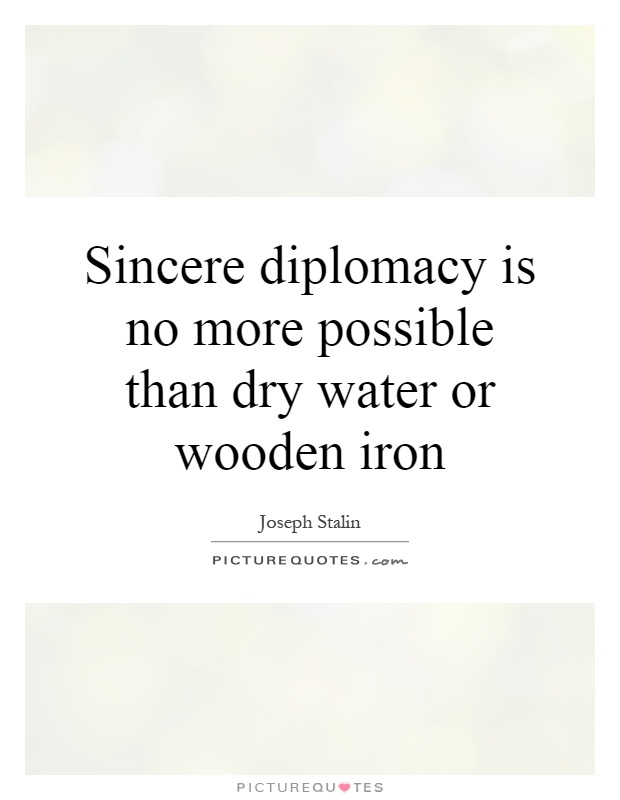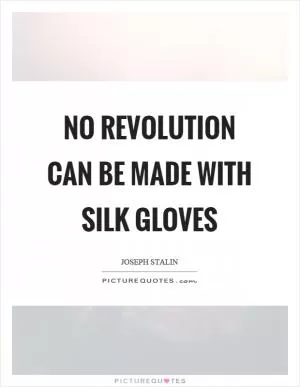Sincere diplomacy is no more possible than dry water or wooden iron

Sincere diplomacy is no more possible than dry water or wooden iron
Joseph Stalin, the infamous Soviet leader, was known for his ruthless tactics and iron-fisted rule over the Soviet Union. His approach to diplomacy was often seen as insincere and manipulative, leading many to believe that sincere diplomacy was not possible for him. The quote “Sincere diplomacy is no more possible than dry water or wooden iron” perfectly encapsulates Stalin’s approach to international relations.Stalin’s diplomatic tactics were characterized by deceit, manipulation, and a lack of sincerity. He was known for making promises and agreements with other countries, only to break them when it suited his own interests. One of the most infamous examples of this was the Molotov-Ribbentrop Pact, a non-aggression treaty signed between the Soviet Union and Nazi Germany in 1939. Despite the pact, Stalin ultimately betrayed Hitler and joined the Allies in World War II, showing his willingness to manipulate diplomatic agreements for his own gain.
Stalin’s lack of sincerity in diplomacy can also be seen in his treatment of his own allies. He purged many of his closest advisors and colleagues, including high-ranking officials in the Soviet government and military, showing that he was willing to betray even those closest to him in order to maintain his power. This lack of loyalty and trustworthiness made it nearly impossible for other countries to trust Stalin in diplomatic negotiations.
Stalin’s approach to diplomacy can also be seen in his handling of the post-war period. He sought to expand Soviet influence in Eastern Europe through a policy of aggressive expansionism, leading to the establishment of communist governments in countries such as Poland, Hungary, and Czechoslovakia. This expansionist policy further alienated Western powers and solidified Stalin’s reputation as a manipulative and insincere leader.












 Friendship Quotes
Friendship Quotes Love Quotes
Love Quotes Life Quotes
Life Quotes Funny Quotes
Funny Quotes Motivational Quotes
Motivational Quotes Inspirational Quotes
Inspirational Quotes